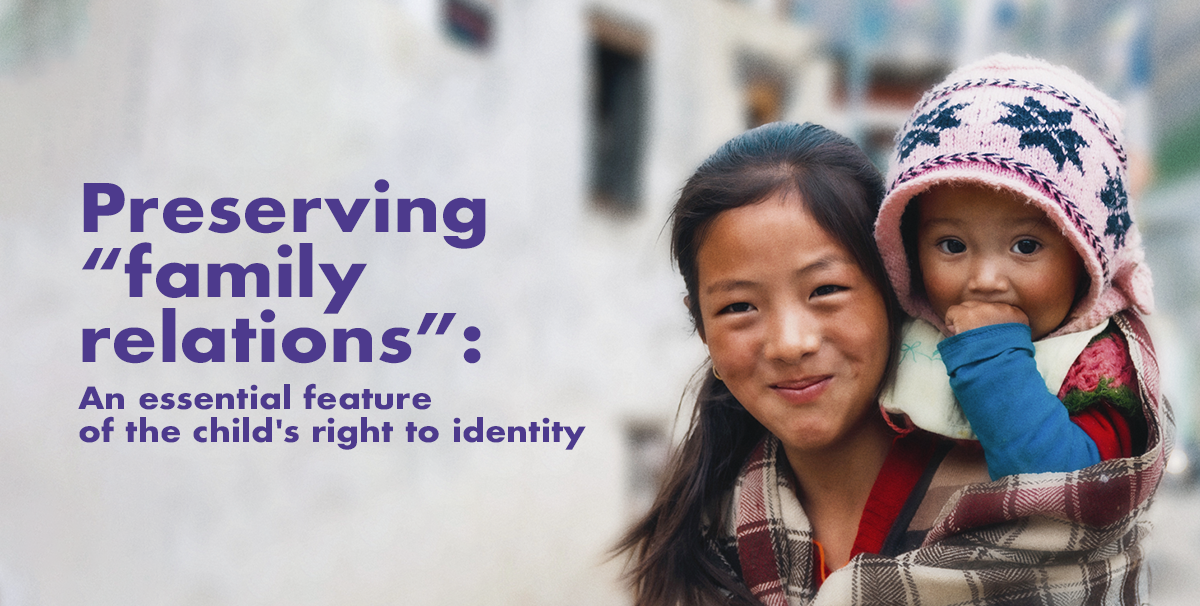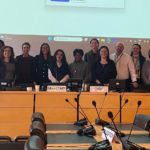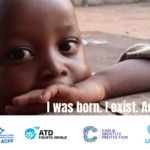
Child Identity Protection launches signature publication – Preserving “family relations”: an essential feature of the child’s right to identity
In a first-ever publication, this research persuasively shows the importance of the right to have one’s family relations legally established or recognised as a stand-alone right, as an essential feature of the child’s identity. Closely linked with the right to birth registration and nationality – two other aspects of identity – without the preservation and restoration of family relations, there is a likelihood of a (devastating) lifelong impact on the child. This publication drafted by the CHIP team has had the benefit of input from multiple leading experts, including UNICEF colleagues leading on identity issues across the world.
Having a complete and true identity, is necessary to the achievement of other rights such as ensuring the child’s physical, psychological, cultural and spiritual development (Art. 6 CRC), keeping families together (Art. 9), facilitating contact with families across countries (Art. 10 CRC) and promoting continuity in a child’s upbringing including ethnic, religious, cultural and linguistic background (Arts. 20 and 30 CRC).
Each person has a family history – genetic, gestational, social and legal – that contributes to his or her identity and origins. Family relations include connections that arise as a result of this history, continuity or separation, encompassing birth, adoptive and intending parents in surrogacy arrangements, gamete donors, siblings, grandparents and other potential ties. Millions of children may be deprived of their family relations in varied situations for example, when placed in alternative care; falsely registered as orphans; as victims of an illicit adoption and/or trafficking; forced into child marriage; recruited into an armed force; subject to the worst forms of child labour; living in street situations; separated or unaccompanied in emergency situations; or born through anonymous recourse to assisted reproductive technology (ART). In situations that involve illicit practices, children may, as well as later as adults, report feeling “commodified.”
The aim of this publication is to highlight the protective aspects related to the child’s identity rights, with a focus on the family relations element, as embedded in international, regional and national standards. This signature piece is the basis of Child Identity Protection’s mission created to broadly protect the child’s right to identity, including birth registration, name, nationality and more specifically family relations. The publication provides direction on how to build identity safeguards, drawing on past lessons and capitalising on current opportunities. To do this, the right to identity is explored through a range of examples of existing challenges, promising practices and testimonies. The Chapters are divided into key moments when the right to identity in family relations may be protected and/or at risk, through its Creation, Modification, Falsification, Preservation and Restoration.
A special thanks to experts who provided their precious input into draft versions and supported its finalisation including Elizabeth Aguiling-Pangalangan, Maud de Boer-Buquicchio, Nigel Cantwell, Raquel Santos Pereira Chrispino, Patricia Fronek, Philip Jaffé, Olga Khazova, Laura Martinez-Mora, Nicolas Nord, Rosa Maria Ortiz, David Smolin, Katarina Trimmings, Hans van Loon and dear colleagues from UNICEF, Kirsten Di Martino, Erin Elzo, Aniruddha Kulkarni, Nankali Masud, Bhaskar Mishra, Cécilie Modvar, Hyacinthe Mokie Sigui, Lucy Richardson and Cornelius Williams.
Given the millions of children whose identity rights related to family relations are at risk and have serious consequences when breached, this publication provides an overview of this global issue, which requires an effective global response. This publication seeks to provide part of this response, by highlighting laws, policies, practices and testimonies that preserve all features that contribute to a full and transparent identity, as well as the restoration of missing or falsified elements.
#No rights without identity
#Knowing origins is a right
Available in English, French and Spanish.
Further information : info@child-identity.org






